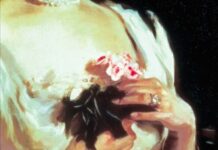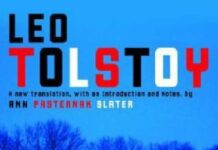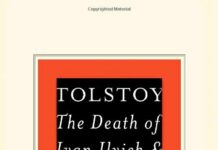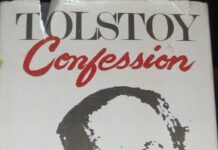
Ebook Info
- Published: 2008
- Number of pages: 317 pages
- Format: EPUB
- File Size: 0.33 MB
- Authors: Leo Tolstoy
Description
Here are some of Tolstoy’s extraordinary short stories, from “The Death of Ivan Ilyich.” in a masterly new translation, to “The Raid,” “The Wood-felling,” “Three Deaths,” “Polikushka,” “After the Ball,” and “The Forged Coupon,” all gripping and eloquent lessons on two of Tolstoy’s most persistent themes: life and death. More experimental than his novels, Tolstoy’s stories are essential reading for anyone interested in his development as one of the major writers and thinkers of his time.For more than seventy years, Penguin has been the leading publisher of classic literature in the English-speaking world. With more than 1,700 titles, Penguin Classics represents a global bookshelf of the best works throughout history and across genres and disciplines. Readers trust the series to provide authoritative texts enhanced by introductions and notes by distinguished scholars and contemporary authors, as well as up-to-date translations by award-winning translators.
User’s Reviews
Editorial Reviews: About the Author Count Leo Tolstoy was born on September 9, 1828, in Yasnaya Polyana, Russia. Orphaned at nine, he was brought up by an elderly aunt and educated by French tutors until he matriculated at Kazan University in 1844. In 1847, he gave up his studies and, after several aimless years, volunteered for military duty in the army, serving as a junior officer in the Crimean War before retiring in 1857. In 1862, Tolstoy married Sophie Behrs, a marriage that was to become, for him, bitterly unhappy. His diary, started in 1847, was used for self-study and self-criticism; it served as the source from which he drew much of the material that appeared not only in his great novels War and Peace (1869) and Anna Karenina (1877), but also in his shorter works. Seeking religious justification for his life, Tolstoy evolved a new Christianity based upon his own interpretation of the Gospels. Yasnaya Polyana became a mecca for his many converts At the age of eighty-two, while away from home, the writer suffered a break down in his health in Astapovo, Riazan, and he died there on November 20, 1910.Anthony Briggs has written, translated, or edited twenty books in the fields of Russian and English literature.David McDuff was educated at the University of Edinburgh and has translated a number of works for Penguin Classics, including Dostoyevsky’s The Brothers Karamazov.Ronald Wilks studied Russian language and literature at Trinity College, Cambridge, and later Russian literature at London University, where he received his Ph.D. in 1972. He has also translated ‘The Little Demon’ by Sologub and, for Penguin Classics, My Childhood, My Apprenticeship and My Universities by Gorky, The Golovlyov Family by Saltykov-Shchedrin and four volumes of stories by Chekhov: The Kiss and Other Stories, The Duel and Other Stories, The Party and Other Stories and The Fiancée and Other Stories. Excerpt. © Reprinted by permission. All rights reserved. Hadji Murat-I was returning home through the fields. It was the very middle of summer. The meadows had been mowed, and they were justabout to reap the rye.There is a delightful assortment of flowers at that time of year: red, white, pink, fragrant, fluffy clover; impudent marguerites; milk-white “love-me-love-me-nots” with bright yellow centers and a fusty, spicy stink; yellow wild rape with its honey smell; tall-standing, tulip-shaped campanulas, lilac and white; creeping vetch; neat scabious, yellow, red, pink, and lilac; plantain with its faintly pink down and faintly perceptible, pleasant smell; cornflowers, bright blue in the sun and in youth, and pale blue and reddish in the evening and when old; and the tender, almond-scented, instantly wilting flowers of the bindweed.I had gathered a big bouquet of various flowers and was walking home, when I noticed in a ditch, in full bloom, a wonderful crimson thistle of the kind which is known among us as a “Tartar” and is carefully mowed around, and, when accidentally mowed down, is removed from the hay by the mowers, so that it will not prick their hands. I took it into my head to pick this thistle and put it in the center of the bouquet. I got down into the ditch and, having chased away a hairy bumblebee that had stuck itself into the center of the flower and sweetly and lazily fallen asleep there, I set about picking the flower. But it was very difficult: not only was the stem prickly on all sides, even through the handkerchief I had wrapped around my hand, but it was so terribly tough that I struggled with it for some five minutes, tearing the fibers one by one. When I finally tore off the flower, the stem was all ragged, and the flower no longer seemed so fresh and beautiful. Besides, in its coarseness and gaudiness it did not fit in with the delicate flowers of the bouquet. I was sorry that I had vainly destroyed and thrown away a flower that had been beautiful in its place. “But what energy and life force,” I thought, remembering the effort it had cost me to tear off the flower. “How staunchly it defended itself, and how dearly it sold its life.”The way home went across a fallow, just-plowed field of black earth. I walked up a gentle slope along a dusty, black-earth road. The plowed field was a landowner’s, a very large one, so that to both sides of the road and up the hill ahead nothing could be seen except the black, evenly furrowed, not yet scarified soil. The plowing had been well done; nowhere on the field was there a single plant or blade of grass to be seen—it was all black. “What a destructive, cruel being man is, how many living beings and plants he annihilates to maintain his own life,” I thought, involuntarily looking for something alive amidst this dead, black field. Ahead of me, to the right of the road, I spied a little bush. When I came closer, I recognized in this bush that same “Tartar” whose flower I had vainly picked and thrown away.The “Tartar” bush consisted of three shoots. One had been broken off, and the remainder of the branch stuck out like a cut-off arm. On each of the other two there was a flower. These flowers had once been red, but now they were black. One stem was broken and half of it hung down, with the dirty flower at the end; the other, though all covered with black dirt, still stuck up. It was clear that the whole bush had been run over by a wheel, and afterwards had straightened up and therefore stood tilted, but stood all the same. As if a piece of its flesh had been ripped away, its guts turned inside out, an arm torn off, an eye blinded. But it still stands anddoes not surrender to man, who has annihilated all its brothers around it.“What energy!” I thought. “Man has conquered everything, destroyed millions of plants, but this one still does not surrender.”And I remembered an old story from the Caucasus, part of which I saw, part of which I heard from witnesses, and part of which I imagined to myself. The story, as it shaped itself in my memory and imagination, goes like this.
Reviews from Amazon users which were colected at the time this book was published on the website:
⭐Other than it’s namesake, there were 2-3 short stories I enjoyed, however to a substantially less degree. DoII is barely over 50pgs but WOW. Would’ve been 5 stars but the other stories brought it to a 4.5, but that rounds up to 5!It’s motivated me to read more his short stories!
⭐Bought for school, arrived in good condition, recommend
⭐Wonderful collection which I am embarassed to say I never before read. Tolstoy is such a keen observer of people and their character and emotions: I know Im not the first one to appreciate him! I bought this book because I wanted to read the Death of Ivan Ilyich: as a physician I wanted to know how Tolstoy so famously depicted his excrutiatingly painful death, in order to both help my patients and for my own self-awareness.
⭐You have to be open minded and imaginative when you read this book. It is a classic and for a reason.
⭐[Note: Nearly a hundred of my fiction reviews by great literary artists and others not so well known are now available in my book, “Novels and other Fictions.” Get it at Amazon.]I’ve been reluctant for decades to read the great Russian master because I never felt I had the time to tackle War and Peace or Anna Karenina. I suspect others have felt the same way and thereby missed reading one of the truly great literary artists to have ever lived. Put it off no more. Pick up this 317-page splendid collection of some of Leo Tolstoy’s best stories including the celebrated “The Death of Ivan Ilyich.”There are six other stories, the most significant of which is perhaps the sad “Polikushka” which is just about as long as “Ivan Ilyich” and to my mind a bit better in some respects. I also very much liked “The Raid” and “The Woodfelling” which are starkly realistic stories about soldiers engaged and not engaged in battle told wistfully without phony heroics or needless sensationalism. In fact, every story is not just excellent, but deeply engaging, cathartic and transcending as only great literature can be.You don’t have to read more than a few pages before you are struck with the sheer majesty of Tolstoy’s gargantuan narrative style, his command of all aspects of storytelling from the kind of deep understanding of character that one finds in Shakespeare, to the kind of descriptive power about people and their environs that can only come from someone with a prodigious memory, a sharp eye and an unusual ability to concentrate. Somehow Tolstoy always knows what to leave in and what to leave out. He knows how to describe without slowing down the tale or making the reader aware of “purple passages.” Everything flows like the great Don as naturally as breathing, but with a massive density of observation and experience, both intellectual and emotional, that frankly leaves this scribe in awe.Tolstoy reminds me of Guy de Maupassant in his realistic depictions of peasant and bourgeois life, except that–hard to believe–he is even better! Furthermore, Tolstoy displays in a restrained and subtle manner a deep love for his characters. Again like Shakespeare he understands the psychology of the high and the low and is sympathetic to their struggles. Even though Ivan Ilyich was a self-important and pitiless magistrate who lived something close to an empty, unobserved life, which Tolstoy presents without rancor or pity, there is nonetheless a sense, especially toward the end, of compassion and empathy for a man who, although elevated in society, really didn’t know any better than to blindly follow an animal bourgeois existence.Although some of the stories are written in the first person Tolstoy stands back and is uninvolved, a seeing eye and a listening ear. Because of his great narrative power, Tolstoy even in the first person seems almost god-like in his point of view. He sees the landscapes and the trees and little children with their soft skin and plaintive cries, and he sees the blowhards and the hypocrites, the pathetic and the drunk, and the stupid, and treats them all the same. For the most part, at any rate. Sometimes his gaze favors some and disparages others. He is both objective and subjective, both a literary artist who values truth with a capital “T” and someone who cares deeply about these people he has invented/imagined/observed and remembered. He presents such an incredibly rich and vivid portrait of life in 19th century Russia that you feel you are there in the bitter cold beneath high blue skies, wearing the rags and the birch bark boots, smoking the cheap tobacco and throwing back the oily vodka, sleeping five to a bed listening to the cockroaches near the stove in the black of night, fearful of death and crossing yourself before icons, and all the while dreaming of something grand and laughing uneasily at the absurdity of life and shivering at the inevitability of death.Yes, this collection, as Anthony Briggs, one of the translators, says in his fine introduction, is about death. Ivan Ilyich dies, but many others also die. Some in battle, some in bravado, some by accident and some by their own hand. Some foolishly, some painfully, some without a notion of why or what for, but all of them essentially alone. Tolstoy focuses intently on this dying and goes deep into the souls of those dying, how they cling to life and rationalize away what is to come and what they have done, lying to themselves; and how others take it as their due, without self-pity, without a word, just a hand to the chest and a stoppage of life, and then a report, some words exchanged, a bit of gossip about so-and-so who is now gone.But as Carl Sandburg told us, the grass will still grow and cover all, and life will go on, and again the same delusions and appetites and vanities will be propagated and the same pain and suffering, the same petty quarrels and petty delights, snatches of beauty amidst the ugly squalor will be seen again, and, as at the ending of “The Raid,” a sonorous voice will once again lift itself into the air in song, and the men will move quietly on to a new task, a new beginning, toward a final ending somewhere down the long and dusty road.
⭐I prefer novels much more than short stories, but decided to take a chance on this. I was pleasantly surprised. While the first few stories were a little bit of a chore to get through, the title story was magnificent. All of the stories revolved around the subject of death, but “The Death of Ivan Ilyich” stood out as a brilliant and nuanced existential journey of a man taking stock of his life as he faces his impending death. I thought this story would be the gem of the book, but then I was really taken by surprise with the final story, “The Forged Coupon,” which may have been even better. In it, what initially starts out as a minor crime begins to have a ripple effect that touches countless people and has major and unpredictable ramifications.
⭐Both Leo Tolstoy and many literary experts consider this 1886 tale The Death of Ivan Ilych “one of Tolstoy’s best stories.”It is impossible to fully evaluate the success of a person’s life until the person is dead. Thus, The Death of Ivan Ilych is really an examination of an only outwardly successful life. This examination, performed by one of the world’s greatest writer, sensitizes readers to the values and vanities of their own lives. Tolstoy tells his tale indirectly; we understand what happens to Ivan by seeing how people act toward him and by seeing how he acts, without Tolstoy needing to explain matters to us.At the outset, we sense how Ivan’s wife reacted to his death when we read that she asked one of Ivan’s friends, before the funeral, how she could increase her pension now that he was dead. We understand about Ivan’s friendships when we read how his friends wanted to play cards rather than attend his wake. Those who thought about his death at all were more concerned about what his death tells them about their own mortality than about Ivan.Then Tolstoy shows Ivan’s life, his apparent joys, difficulties, behaviors, his advancements in his jobs and his final illness.We learn how Ivan was affected by the deterioration of his marriage by reading what he did inside and outside his home. We read about all the troubles Ivan took to decorate his home when he became successful and acquired a higher salary. He was very proud. Yet: “In reality it was just what is usually seen in the houses of people of moderate means who want to appear rich, and therefore succeed only in resembling others like themselves.” In reality, despite his efforts, despite his pride, his house was like the others, in no way exceptional. Yet, he fell while working hard to decorate his home, and the fall may have caused the illness that began at that time.Ivan thought of himself as successful, a man of power; yet, ironically, when he needed others, his “power” was ineffectual. We read of the ridiculous, self-centered, inept medical specialists who treated him as they would treat any other person, improperly.At the end of his life, Ivan tried to “recall the best moments of his pleasant life. But strange to say none of these pleasant best moments of his pleasant life now seemed at all what they had then seemed.” Life at the end appeared senseless, trivial, helpless, often nasty; Ivan saw that his life was filled with unintended accidents, like the accident of his marriage, which occupied the bulk of his pathetic life.His final illness lasted several months, and the reader may want to compare the months of his dying to the years when he was well.The book in short, is a comment on everyone, and it is a dramatic delightful fictional version of the pessimistic attitude of the biblical Ecclesiastes who proclaimed, “All is vanity.”
⭐Tolstoy is my favorite Russian writer. Throughout his stories runs a parallel line in which you feel how much Tolstoy loved the common people about which he wrote. I fear I’m far away of making any sort of review that can really match to the grandiosity of this Titan of Russian and world literature. I’ve read most of his short novels and each one is a gem on itself. Amazing!
⭐Rating for the print and binding quality of the book. Can’t upload images through the Amazon app. Will try again later.
⭐Good book
⭐very good
Keywords
Free Download The Death of Ivan Ilyich and Other Stories (Penguin Classics) in EPUB format
The Death of Ivan Ilyich and Other Stories (Penguin Classics) EPUB Free Download
Download The Death of Ivan Ilyich and Other Stories (Penguin Classics) 2008 EPUB Free
The Death of Ivan Ilyich and Other Stories (Penguin Classics) 2008 EPUB Free Download
Download The Death of Ivan Ilyich and Other Stories (Penguin Classics) EPUB
Free Download Ebook The Death of Ivan Ilyich and Other Stories (Penguin Classics)





